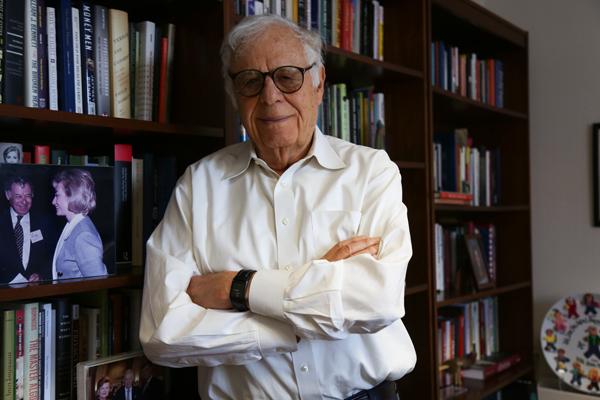Some students are reconsidering their majors or career paths after the results of last month’s presidential election.
President-elect Donald Trump’s administration promises a distinct change in the country’s political climate, which could affect numerous fields of study. Faculty say students have expressed concern over pursuing certain careers, like those in government agencies, under the new administration because of a possible lack of government jobs after Trump’s proposed ban on hiring for all civilian governmental jobs.
David Rain, the director of the environmental studies program, said in an email that students in his program have expressed concern that Trump’s campaign promises to shrink the Environmental Protection Agency and back out of the Paris climate deal means that they may not have the potential for careers under the new president.
Rain said he has advised students to continue studying environmental science regardless of the political change because the future is uncertain: Trump has already reversed stances on some of his campaign promises, like repealing the Affordable Care Act and prosecuting former Democratic presidential nominee Hillary Clinton, since his Nov. 9 victory.
“Over the next few years there are going to be many appealing business and service opportunities in the transition to a low carbon economy, and I somehow see a path through this, even with the unpredictability of Trump,” Rain said.
Rain said that he has heard from students both before and after the election that they are most concerned about learning the right skills and being well-positioned for the job market or graduate school after leaving GW.
Students are particularly worried about getting jobs in the federal government because Trump has proposed a hiring freeze on all civilian federal jobs not involved in public safety or public health to reduce the size of the federal workforce and cut down on costs.
“The government workforce is aging and many agencies are in need of new blood. That is one reason why the hiring freeze that Trump apparently wants is not a good idea,” Rain said. “This is where a geography or environmental studies graduate with GIS skills could be very marketable.”
Students with interests in the environment and sustainability may actually have an advantage under the new administration because, if abolishment and hiring freezes do not happen, younger people in the field will still need to be hired.
Amitai Etzioni, a professor of international affairs, said the new administration may force students who had initially been considering jobs in the government to look for private sector jobs.
“There is going to be preferences for jobs in security, the military and maybe engineering. But, not human services. And even in those areas, more and more work will likely be turned over to the private sector,” Etzioni said.
Etzioni said that regardless of the changes coming to the federal government after this election cycle, students’ primary concern remains their postgraduate “economic well-being,” and students may choose career paths likely to be the most profitable, even if the jobs aren’t their first choice.
“Students are already here at this wonderful university, so that doesn’t mean they cannot adapt if they want to,” Etzioni said. “I assume students will try to adjust within the confines of GW.”
He said the changes to government agencies and policies President Barack Obama currently has in place could mean more students would want to pursue concentrations in security policy, as opposed to humanities-driven concentrations like international development or conflict resolution.
Robert Entman, a professor of media and public affairs specializing in political communication, said in an email that he is anticipating “little net change” in students who are interested in media and government careers. He said that while some students will be dissuaded, others might consider careers in the government to fight against an administration they disagree with.
“One might assume more young people will seek media and government careers if they’re horrified by the undemocratic outcome of the election and want to improve things,” Entman said. “Or they might eschew anything to do with media and government because the systems are so corrupt or otherwise flawed.”
Alexander Astin, the founding director of the Higher Education Research Institute at the University of California at Los Angeles, said that because politics are usually considered separate from someone’s personal choices for careers, he doubts many students will switch their majors and career goals based on recent events.
“Anything that affects students’ values can affect major and career choice,” Astin said.
Astin said that a the spike in materialism during the 1970s and ’80s caused a decline in the number of teachers and a rise in students pursuing business degrees. He said some areas of government work could be affected by the values Trump and his supporters are promoting, but it won’t be clear which career areas are affected until later in Trump’s administration.
“Even if the election does cause students to reassess their values and subsequently alter their degree choices, the implications of this in the job market would be a longer process,” Astin said.
Colleen Grablick contributed reporting.







